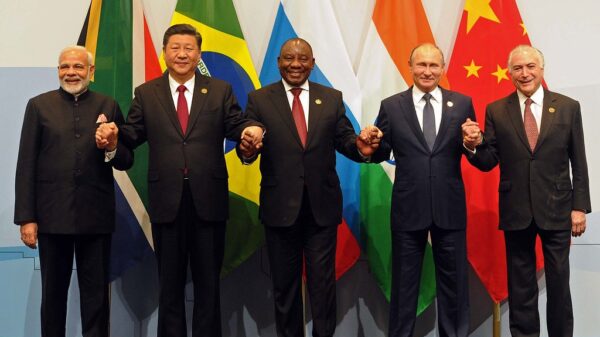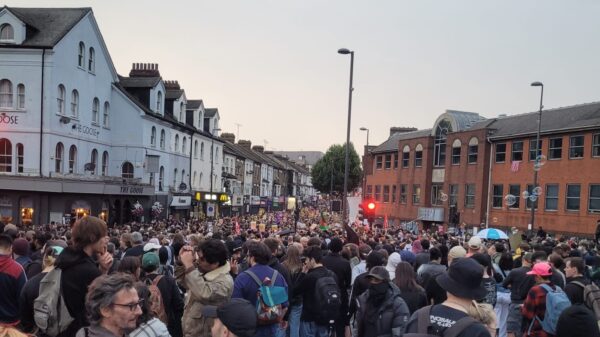Staff writer Abhinav Poludasu discusses the recent ethnic clashes in northeastern India.
The northeastern Indian state of Manipur has been in turmoil for some time now. The most recent spate of violence has left at least 58 dead and 25 churches destroyed or burnt down. The conflict arose between the Meitei community, who make up the majority of the population and primarily follow the Hindu faith and reside in and around the state capital of Imphal and the Kuki tribe, who primarily follow the Christian faith and inhabit the hill regions. The situation is complex, with the tensions that exist between ethnic groups over a range of territorial and economic interests spanning over several decades.
The immediate trigger for the recent ethnic unrest in Manipur was the demand for the inclusion of the Meitei community, which comprises 53% of the state’s population and predominantly inhabits the Manipur Valley, in the Scheduled Tribes (ST) list. However, underlying this proximate cause are deeper issues. These include the government’s crackdown on reserved and protected forests in the State’s hill areas, which has caused resentment among tribal communities- particularly the Kukis who feel persecuted. Moreover, the influx of Chin people (who are from the same ethnic group as the Kukis) crossing the border in Myanmar into India as refugees has further aggravated the situation, as the government’s tough stance against illegal immigrants has angered the Kukis, who view them as kin.
The Manipur High Court recently ordered the State Government to respond to the Meitei community’s request for Scheduled Tribe status, which gives communities special protections. However, many tribal groups have resisted this change for fear of a dilution of their own protections and political representation. On 3 May 2023, violence erupted following a march held by the All Tribal Students Union Manipur (ATSUM) in opposition to a recent Manipur High Court order.
The situation escalated even further on 4 May 2023, prompting the Indian Government to invoke Article 355 of the Constitution. This provision empowers them to take necessary measures to protect a state against external aggression or internal disturbances. As a consequence of this, convoys of soldiers, paramilitaries and local police personnel were deployed to the affected areas.
This violence has resulted in the displacement of over 23,000 individuals belonging to the Kuki and Meitei communities and the destruction of buildings, homes, vehicles and other property. According to defence sources, approximately 9,000 people have been rescued and provided with shelter. While over a dozen people have been reported killed and hundreds injured, there is no official confirmation of the number of fatalities at this time.
The situation in Manipur is complex, with a long history of tensions between different ethnic and religious groups. The Meitei community has traditionally been dominant in the state, but there are also significant tribal communities that have their own distinct cultures and identities. The demand for Scheduled Tribe status by the Meitei community has been a contentious issue, with a number of tribal groups opposing it on the basis that conferring such status upon the majority Meitei population would confer equivalent privileges upon them as upon the smaller tribal communities residing in the hills, thereby contravening the intended purpose of the Scheduled Tribe status. The Meiteis do, after all, compromise more than 50% of the region’s population.
The Bharatiya Janata Party (BJP) Chief Minister, Nongthombam Biren Singh’s unwavering position regarding the encroachment of reserved and protected forest areas in the hills by tribal communities – consisting of the removal of boundary pillars and setting fire to reserved forest areas by the tribal population – is rooted in multiple factors.These include the use of forest land for poppy cultivation and the government’s crackdown on drugs. However, the government’s labeling of all Kuki people as “drug lords” has led to resentment.
Another issue contributing to the unrest is the pressure on land in Manipur. As tribal villages’ populations grow, they tend to expand into surrounding forest areas, which they see as theirs by ancestral right. However, the Government contests their claim to these lands. Meanwhile, the Meitei, who live in the valleys, are frustrated as they are not allowed to settle or purchase land in the hill areas, while tribal people can buy land in the valleys.
The government has no clear policy on how it intends to recognise new villages, and there is no consistent policy on how forests will be allocated in Manipur, causing resentment even within the BJP.
The recent violence is a reflection of these long-standing tensions, with the growth of Hindu nationalism adding an additional layer of complexity to the situation. The BJP and the Rashtriya Swayamsevak Sangh’s (RSS) efforts to promote Hinduism as the dominant religion in India have led to tensions in many parts of the country, and Manipur is no exception.
The order from the High Court, which seeks a government recommendation to grant the Meitei community Scheduled Tribe status, has been perceived as provocative. It is worth noting that even among the Meiteis, opposition to this measure has emerged. This is due to their historical identity as a settled agricultural community spanning over two millennia.
In light of the events, the Indian Government’s invocation of Article 355 in the State could be perceived as an excessive response. Such a measure raises suspicions of larger motivations at play that could relate to Manipur’s status as a border State. The recent deployment of significant security forces in response to the violence may also show further notice of such intentions.
Despite the recent signs of normalcy returning, and the Supreme Court ready to hear pleas against the High Court judgement, the long-term success of the BJP-led national government and the Manipuri state government in establishing a lasting agreement that is agreeable to all stakeholders remains uncertain. It is essential that we monitor developments closely to assess the how the situation evolves in Manipur.

















